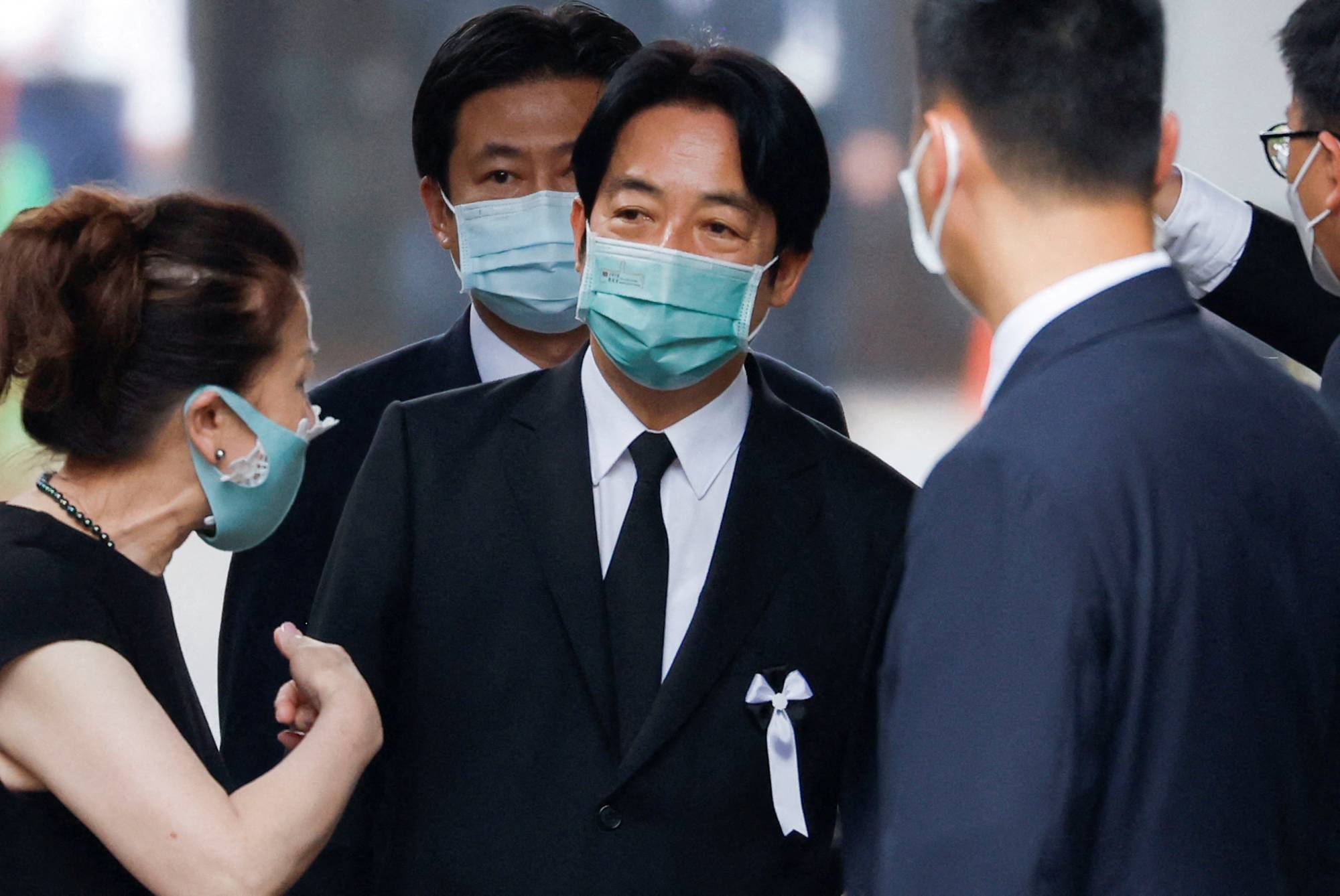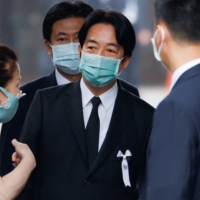China filed a diplomatic protest with Japan over a visit by a top Taiwanese official to mourn the death of its former leader, but refrained from firing off the sort of withering criticism that usually follows such contacts.
"After the sudden and unfortunate passing of former Japanese Prime Minister Shinzo Abe, the Taiwan authorities latched onto the opportunity for political manipulation,” Chinese Foreign Ministry spokesman Wang Wenbin said Tuesday at a regular press briefing in Beijing, referring to Vice President William Lai’s journey.
Taiwan’s "political scheme can never succeed,” Wang said, adding that China filed "stern representations” with Japanese diplomats and "made clear our position.”
Beijing generally lashes out at nations over their interactions with Taiwan’s officials, saying they amount to interference in its internal affairs and demanding they adhere to its one-China principle. After Abe and Taiwanese President Tsai Ing-wen held a call in March, Wang attacked Japan for its history as a colonial power and said it was responsible for "grave, historical crimes and debt to Chinese people.”
China earlier took steps to rein in nationalist voices angry at Abe for supporting Taiwan. Hu Xijin, the former editor of the Communist Party’s Global Times newspaper, told people cheering Abe’s killing on social media that "this is the time to put aside political disputes.”
Lai is the most senior Taiwanese official to travel to Japan in decades, though the Foreign Ministry in Taipei said he was on a "personal trip.” He visited Abe’s family residence in Tokyo, accompanied by Frank Hsieh, Taiwan’s representative to Japan.



















With your current subscription plan you can comment on stories. However, before writing your first comment, please create a display name in the Profile section of your subscriber account page.